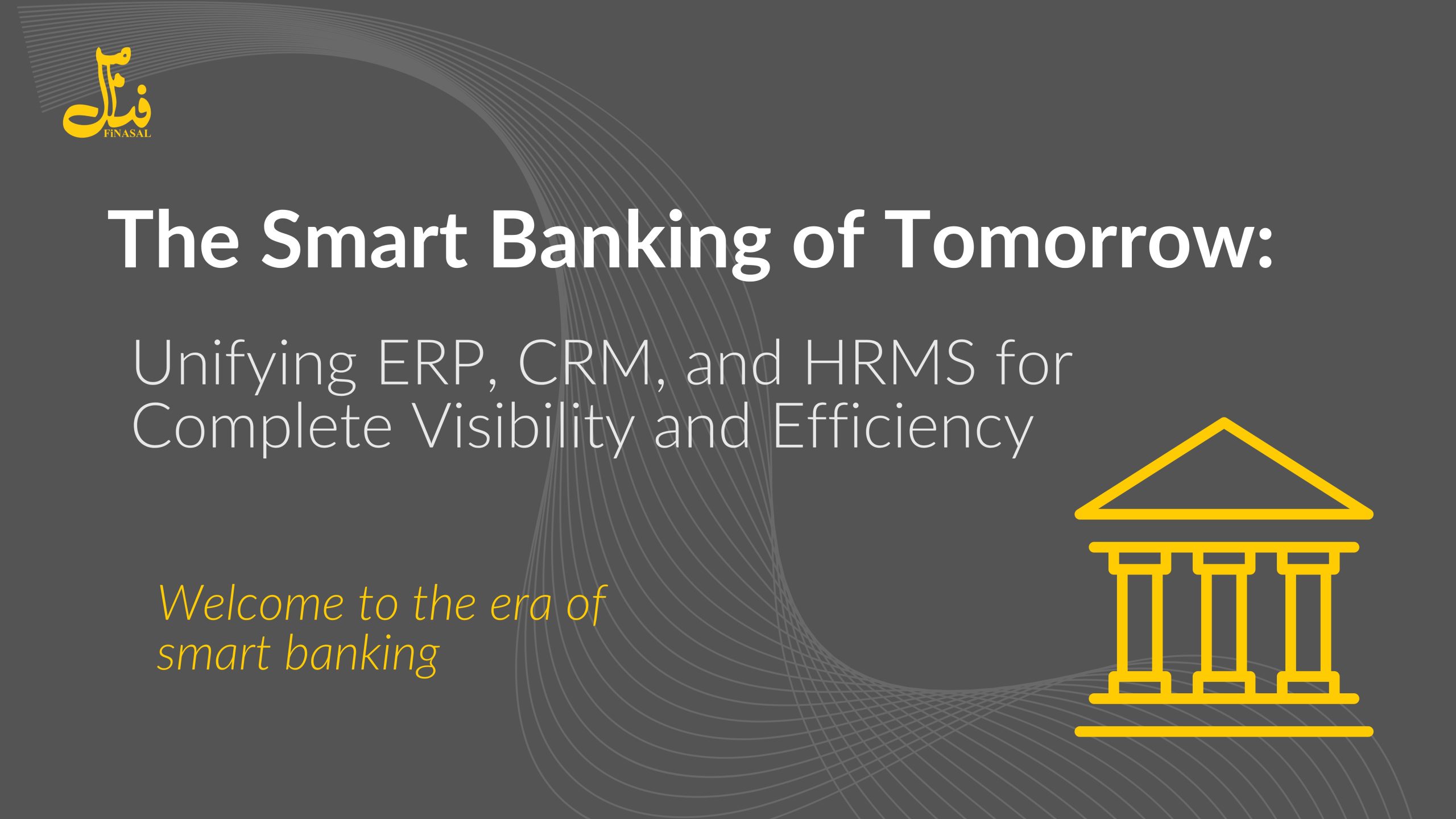Introduction: Welcome to the Era of Intelligent Banking
The banking sector is rapidly shifting from traditional setups to digital-first ecosystems, fueled by smart bank technology. With this evolution comes the urgent need for digital transformation in banking—streamlining operations, delivering personalized banking experiences, and enhancing workforce management in banking.
Many banks, however, are stuck with fragmented systems: isolated ERP for financials, basic CRM for customer support, and outdated HR software. This leads to data silos, inefficiencies, and delayed decisions. The solution? The smart bank of tomorrow leverages ERP CRM HRMS integration banking to create a unified, future-ready operation powered by intelligent banking solutions.
Why Integrated Systems Are the Backbone of Modern Banking
In a high-stakes industry, banking compliance automation, customer trust, and agility are critical. A technology stack that integrates ERP, CRM, and HRMS delivers key benefits:
- End-to-End Visibility: Real-time insights for banking operational efficiency.
- Data-Driven Decisions: Unified data to support intelligent banking solutions.
- Enhanced Productivity: Improved workforce management in banking and customer satisfaction through personalized banking experiences.

1. ERP: Driving Financial Precision and Agility with Smart Bank Technology
Enterprise Resource Planning (ERP) systems are the foundation of banking operational efficiency, enabling banks to manage financial operations with precision. From budgeting to banking compliance automation, ERP ensures agility.
Key Benefits of an Integrated ERP:
- Real-time financial dashboards for actionable insights.
- Automated compliance reporting (e.g., IFRS, Basel III) to meet regulatory demands.
- Streamlined vendor and asset management.
- Enhanced risk management and internal controls.
Real-World Impact: A regional bank using cloud-based banking software reduced its month-end closing time from 10 days to 3, allowing the finance team to focus on strategy.
2. CRM: Building Stronger, More Personalized Banking Experiences
A smart CRM system, as part of ERP, CRM and HRMS integration banking, enables banks to deliver personalized banking experiences, automate sales, and build trust.
What an Integrated CRM Offers:
- A 360° customer view with transaction history and preferences.
- Automated onboarding and KYC workflows for efficiency.
- AI-driven cross-sell and upsell recommendations.
- Omnichannel support across email, chat, and branches.
Real-World Impact: A mid-sized bank used CRM data to tailor loan offers, boosting conversion rates by 35% in three months, showcasing the power of intelligent banking solutions.
3. HRMS: Empowering Workforce Management in Banking
Behind every smart bank is a well-managed team. Human Resource Management Systems (HRMS) streamline workforce management in banking, from recruitment to compliance tracking.
Why HRMS Integration Matters:
- Centralized employee data for better collaboration.
- Automated payroll, benefits, and leave management.
- Data-driven insights into workforce productivity.
- Built-in training and banking compliance automation tracking.
Real-World Impact: A digital bank used HR analytics to reduce attrition by 20% through personalized career development plans, demonstrating effective workforce management in banking.

The Magic of Integration: One Unified View with Microsoft Dynamics 365 for Banks
When ERP, CRM, and HRMS systems are integrated using platforms like Microsoft Dynamics 365 for banks, banks gain full transparency. This creates powerful synergies:
- Finance + HR: Align budgeting with hiring needs for banking operational efficiency.
- HR + CRM: Reward customer-facing teams based on satisfaction scores.
- CRM + ERP: Link real-time credit scoring with financial health for smarter decisions.
This interconnected approach, powered by cloud-based banking software, ensures banks can adapt, engage, and grow sustainably.

Security and Scalability with Cloud-Based Banking Software
Integrated systems like Microsoft Dynamics 365 for banks are built on cloud-based banking software, offering:
- Bank-grade encryption and security protocols.
- A modular architecture for seamless upgrades.
- Global compliance support through banking compliance automation.
- Built-in AI and automation to drive intelligent banking solutions.

Conclusion: Smart Banks Lead with Digital Transformation in Banking
The bank of tomorrow anticipates change, delivers personalized banking experiences, and operates with peak efficiency. ERP CRM HRMS integration banking is a strategic necessity for staying competitive in a digitally disrupted world.
By adopting smart bank technology, banks achieve:
1. A single source of truth for all data.
2. Seamless customer and employee experiences.
3. Banking operational efficiency that drives growth.
Transform how you operate, connect, and grow. Explore how FiNASAL’s intelligent banking solutions can future-proof your institution and put you at the forefront of innovation.

